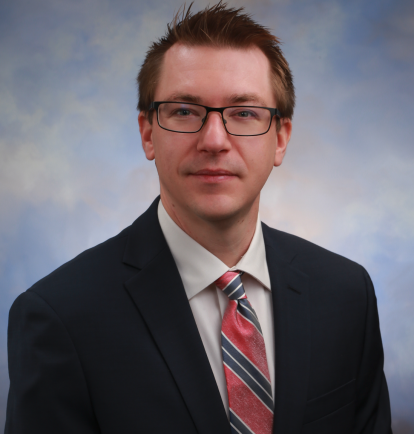Christopher Thomas Goodwin (Ph.D., University of Illinois at Urbana-Champaign, 2024) is a historian of modern Germany with research and teaching interests in disability history, the institutional cultures and political ideologies of militaries, and the intersection of historical inquiry with digital methodologies.
His current book project, Broken Supermen: Disabled Veterans and Soldiers in Nazi Germany, interrogates the cultural and ideological position of disabled Wehrmacht soldiers in Nazi Germany. He argues that the regime presented the approximately 1.7 million disabled veterans as exemplary representatives of Nazi ideology and utilized them in an attempt to align the broader German population with Nazi ideals of race, gender, class, and able-bodiedness. Yet Nazi leaders badly misjudged their ability to transform the war wound into a symbol of German racial and masculine superiority. Disabled veterans enthusiastically accepted the honors and privileges the regime bestowed upon them, but they were not content in the absence of greater material privileges. The Nazi attempt to stabilize the meaning of the war wound faltered against the everyday realities of life as a disabled veteran in the Third Reich. More broadly, the project contributes to historicizing the “disabled veteran,” a figure that looms large in national mythologies. The disabled veteran presented a dire challenge to the modern nation-state. In some ways, dying for the nation was easier to integrate into the concept of citizenship than sacrificing bodily integrity and continuing to live—a fate often considered worse than death itself.
The use of technology—both the challenges it presents and its exciting possibilities—informs Goodwin’s pedagogical and research practices. His courses include digital humanities components with an eye toward bringing together traditional historical inquiry, history for the public, and valuable tech skills for students. He has coupled scripting (Python), programming (C++, Java), machine learning algorithms, and generative AI (large language models, image generation) with historical inquiry to examine the transformation of the everyday culture and lived experiences of disabled veterans in Germany in the 20th century. He is the lead programmer for the MinDoc project, a framework dedicated to publishing historical research to the general public, and HistoriansTextTools, a Python library for text mining that assists researchers’ coding projects. These and his other digital humanities projects can be found in his GitHub repositories.
Goodwin’s work has appeared in Central European History, Journal of Family History, Programming Historian, and War and Society, among other venues. His articles have won the Joseph Ward Swain Article Prize and the University of Illinois Humanities Research Institute Research Prize. The Fulbright U.S. Research Program, the University of Illinois Graduate College, the U.S. Department of Education, the German Studies Association, and the Society for Military History have generously supported his research.
